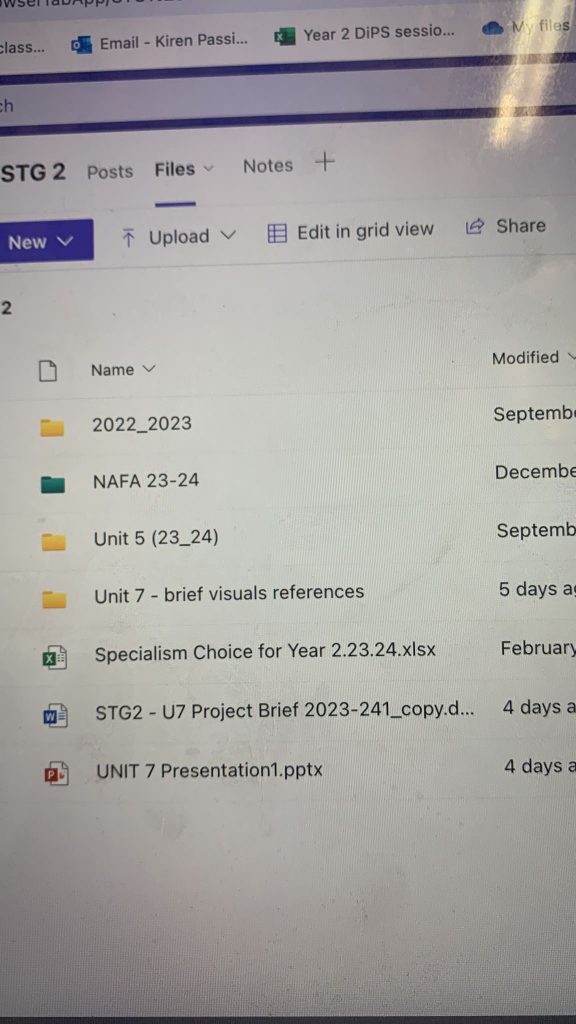Introduction & Background

The planning of our workshops seminars is always a challenge because of the very limited time we have assigned to planning teaching within the academic year.
BA (HONS) Textile design academics are uniquely split between the following:
- Craft- based specialism academics (knit, print, stitch, weave)
- Craft-based technical workshop tutors ((knit, print, stitch, weave).
- Design practice & theory- based tutors.
Each academic group has their main focus and bias towards what they perceive should be the main focus within any given unit brief in order to achieve the specified assessment/learning outcomes. It’s my job as Year 2 Leader to facilitate the planning of the brief and programme delivery within the timetable with the Course Leader, making sure all voices are heard and given the opportunity to contribute to the development of unit briefs and timetable planning.
Evaluation
- Team delivery planning meetings tends to occur in a series of all-day meetings generally at the end of an academic term timetabled in by the course leader, these meetings occur after students have officially finished and gone on holiday.
- At this stage most staff are irritable due to varying levels of general fatigue at the end of term.
- Time pressured with assessments, fatigued from delivery so motivation levels are low.
- Difficult to facilitate all voices/stakeholders being heard in a series of two all-day ‘mega meetings’ with the entire textile delivery team with the goal being a fully resolved Unit brief and timetable.
- This can lead to less clarity within briefs in terms of what we’re asking the students to produce to meet the assessment criteria and learning outcomes.
- Which could subsequently lead to more student referrals and resubmissions of unit work.
Moving Forward
Make the Grade is an intervention which aims to increase attainment and reduce the
likelihood of referrals and resubmissions from students. It directly addresses common reasons for students losing marks on unit assignments: forgetting straightforward elements of their assignments and not understanding the marking criteria.
Reducing referrals and resubmissions Finnigan (2019)
Moving forward, from my learnings especially after reading the UAL. Academic Enhancement Model Worksheet ‘Reducing referrals and resubmissions’ (2019). I will try to mitigate these challenges by adopting the following:
- Populate the academic calendar with some key dates within the year to hold ‘Unpacking Unit Meetings’ to discuss and hear opinions on how to address the unit assessment and learning criteria within unit briefs and timetables. These meetings would be less formal than the ‘mega meetings’ and could even take place over lunch lasting between 30-60 minutes maximum. The main difference is that the textile team would be separated into three smaller academic groups. One with the core unit lead academics (Course leader, Critical Practice Coordenator, Year Leader). The second with the specialist tutor academics (Print, Knit, Stitch, Weave). The third with the specialist technicians ((Print, Knit, Stitch, Weave).
- In edition to the timetabled ‘assessment briefings’ with the students where I talk through the unit assessment criteria ahead of their unit submission day traditionally a week before their submission date, I’ll introduce a student submission checklist that I can also go through with the students at the assessment briefing but this will also be made available for students in a PDF format on Moodle with their unit information.
References
Reducing referrals and resubmissions, Terry Finnigan (2019)